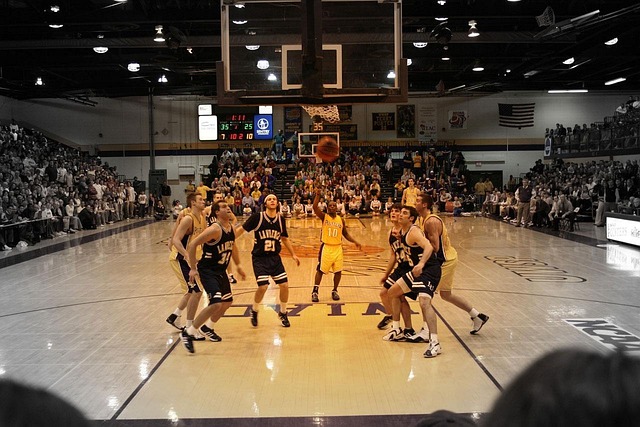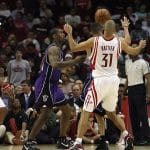When we think of professional basketball players, names like Michael Jordan, LeBron James, Kobe Bryant, and Stephen Curry instantly come to mind. These athletes are not just great; they are elite basketball players whose skills, leadership, and dedication to their craft have shaped the game for generations. But what exactly makes these athletes so great? Is it their natural talent, relentless training, or something else entirely? Let’s break down the qualities and insights into the training regimens, skills, and leadership that make the best professional basketball players stand out in a crowded field of competition.
1. The Mindset: Relentless Drive and Dedication
At the core of every elite basketball player lies a relentless drive to be the best. Talent alone can only take you so far—it’s the dedication to the craft, day in and day out, that separates the greats from the rest of the pack. For example, Kobe Bryant famously embraced the “Mamba Mentality”—a mindset that combined a fierce competitive spirit with an unwavering commitment to improvement.
Bryant’s training regimen was legendary. He would arrive at the gym before sunrise and sometimes practice for hours before his teammates even got there. His discipline and focus allowed him to refine every aspect of his game—whether it was his footwork, his shot mechanics, or his defensive positioning. And this wasn’t a one-time thing—it was his everyday routine. Bryant’s story is a prime example of how hard work and consistency can transform raw talent into greatness.
But it’s not just the physical side of training that makes players great—it’s also about mental toughness. The best players have an ability to focus under pressure, block out distractions, and perform when the stakes are highest. Think of LeBron James during clutch moments in the NBA Finals or Michael Jordan’s infamous “Flu Game.” These athletes didn’t just have a high skill level—they also had mental resilience to elevate their performance when their teams needed them most.

2. The Training: Physical Conditioning and Skill Development
No matter how talented you are, the physical demands of professional basketball can break you down if you don’t prepare properly. The training regimens of professional players are as intense as they come. Elite athletes understand that basketball is a full-body sport that requires strength, endurance, flexibility, and explosiveness.
LeBron James, for instance, is known for his incredible conditioning. As one of the most physically gifted players in NBA history, LeBron has built his body to withstand the grueling demands of the NBA, and it’s a big part of why he’s still playing at a high level in his late 30s. His strength training, combined with a focus on explosive power and agility, keeps him fast, strong, and ready to play at his peak, game after game.
Another example is Stephen Curry, whose journey to becoming one of the greatest shooters in NBA history didn’t happen by accident. His work ethic is legendary, especially in terms of shooting drills. Curry has spent countless hours working on his shooting mechanics—whether it’s off the dribble, coming off screens, or catch-and-shoot situations. His precision shooting is a result of a relentless focus on technique and consistency.
But don’t just take it from me—these players often talk about the “grind.” The best players spend hours in the gym working on their skills. For example, ball-handling drills, shooting drills, footwork, and defensive positioning are all integral parts of their training. It’s not just about physical fitness; it’s about fine-tuning the little things that can make a huge difference when it counts.
3. Skills of Top Basketball Athletes: Versatility and Mastery
Now, let’s take a look at the skills that set the best basketball players apart. The ability to dominate on both ends of the floor is a hallmark of top-tier players. Great athletes are not just skilled at scoring; they are also excellent passers, defenders, and playmakers. LeBron James, for instance, is known for his court vision, allowing him to not only score but also create opportunities for his teammates. His passing ability is often compared to that of the best point guards in history, even though he plays a forward position.
Likewise, Michael Jordan’s footwork and ability to create his own shot were second to none. Jordan’s mid-range game was a thing of beauty, and his ability to adjust mid-air, while maintaining control and precision, set him apart as a scorer. His basketball IQ allowed him to see plays develop before they even happened, making him a constant threat on both sides of the court.
A crucial part of these players’ versatility is their ability to adapt to the game as it evolves. Take Stephen Curry, for example—before Curry, the three-point shot wasn’t regarded as a major weapon. But through his incredible shooting range and movement off the ball, Curry revolutionized the game and made the three-point shot a centerpiece of modern basketball.
Players like Kevin Durant show us another layer of versatility. Standing 7 feet tall, Durant has the ability to shoot over defenders, making him nearly impossible to block. Yet he can also play the point guard position in certain lineups, showcasing his ability to handle the ball and create plays. This multidimensional game is something that great players continuously develop and refine.
4. Leadership and Influence on the Court
It’s easy to look at the stats and physical abilities of players like Kobe Bryant or Tim Duncan, but what often sets them apart is their leadership. Leadership in professional basketball isn’t just about calling the shots; it’s about leading by example, staying cool under pressure, and inspiring your teammates to perform at their best.
Kobe Bryant’s leadership style was fierce. He held his teammates to a high standard, but also pushed them to become better through his own relentless work ethic. He often said that “leadership is not about being the best player on the court; it’s about making your teammates better.” And it was this mentality that helped propel him to five NBA championships.
LeBron James, meanwhile, is known for his inclusive leadership. He’s a player who doesn’t just score points; he elevates those around him. LeBron often takes young players under his wing, teaching them the ins and outs of the game, and making them better both on and off the court. It’s not just about scoring; it’s about the team dynamic and creating a winning culture.
As for Michael Jordan, his leadership was a mix of intense competitiveness and the ability to inspire through his actions. Jordan didn’t hesitate to challenge his teammates, demanding they give their best. But at the same time, he had an ability to pull off the most incredible performances in clutch moments—instantly making his teammates believe they could win.
5. Basketball Legends and Their Impact on the Game
It’s impossible to talk about the best professional basketball players without considering the impact they’ve had on the game itself. Basketball legends like Michael Jordan and Magic Johnson didn’t just play the game—they changed it. Jordan’s global appeal turned the NBA into an international phenomenon, while Magic’s exceptional passing ability transformed the role of the point guard.
LeBron James, too, has become much more than just a player. He’s a global ambassador for the sport, using his platform to raise awareness on social issues, start schools for underprivileged kids, and give back to the community. He’s been able to influence the game on and off the court, bridging the gap between sports and culture. This influence is what makes him not just a basketball player, but a cultural icon.
Conclusion: What Makes the Best Players Great?
So, what truly makes the best professional basketball players great? It’s a combination of hard work, talent, skills, and leadership. These athletes don’t just rely on what they were born with; they work tirelessly to improve and elevate their games. Their dedication to perfecting their craft, their ability to lead by example, and their overall impact on the game is what sets them apart from others.
Whether it’s the work ethic of Kobe Bryant, the versatility of LeBron James, the shooting mastery of Stephen Curry, or the leadership of Michael Jordan, these players all share a common thread: they’ve pushed the boundaries of what’s possible, influencing not just the game itself, but also the next generation of players.
In the end, the legacy of these basketball legends isn’t just about the points they scored or the trophies they won—it’s about the mark they left on the game, and the inspiration they continue to provide to players today. And that, ultimately, is what makes them truly great.



